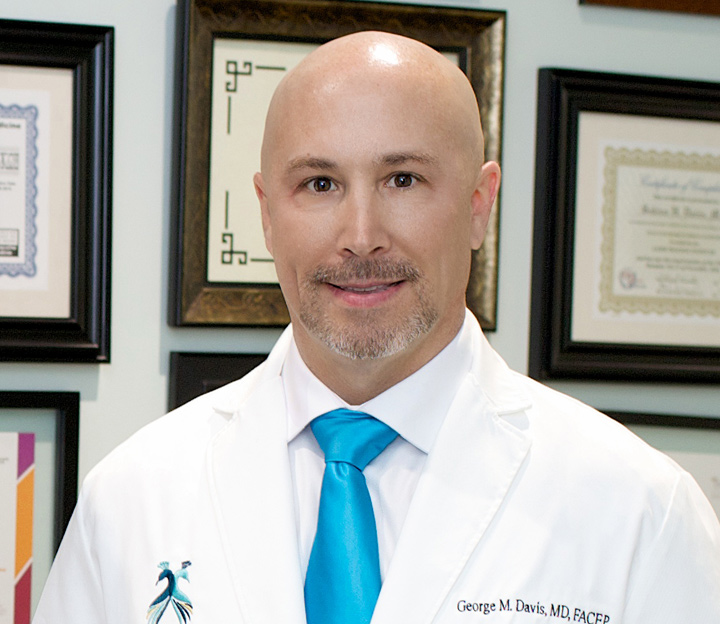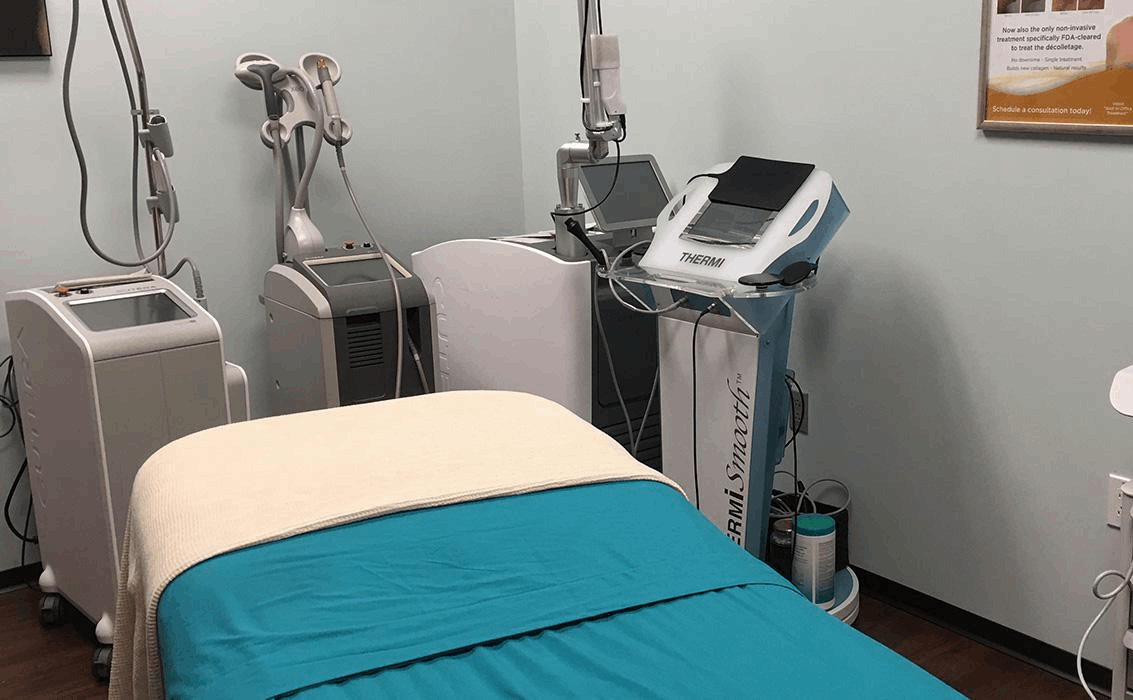Overview
Men may face the discomfort of hot flashes, often stemming from hormonal changes like declining testosterone levels during andropause or as a side effect of medical treatments such as androgen deprivation therapy (ADT) for prostate cancer. We understand that these episodes can take a toll on mental health and overall quality of life.
Furthermore, it’s crucial to recognize the underlying causes and triggers of these experiences. By doing so, we can provide the necessary support and explore effective treatment options together. In addition, understanding these challenges is the first step towards finding relief and improving well-being.
If you or someone you know is navigating this journey, remember that you’re not alone. Together, we can address these concerns and work towards a healthier, more fulfilling life.
Introduction
Hot flashes are often thought of as a women’s issue, but many men also face this surprising experience, especially those undergoing hormonal changes or certain medical treatments. Understanding why a man might experience hot flashes can provide crucial insights into their health and well-being.
As societal stigma around male vulnerability persists, it’s important to ask:
- What factors contribute to this discomfort?
- How can men navigate the emotional and physical implications of hot flashes?
By exploring these questions, we not only shed light on a common yet often overlooked experience but also empower men to seek the support and solutions they truly deserve.
Together, we can break down the barriers of stigma and foster a community where men feel comfortable discussing their health challenges. Let’s take this journey towards understanding and wellness, ensuring that no one has to face these struggles alone.
Understanding Hot Flashes in Men: Who Is Affected?
While not as frequently discussed as in women, the phenomenon of sudden warmth in men leads to the question of why would a man have hot flashes, significantly affecting many, particularly those undergoing specific medical therapies or experiencing hormonal changes. Did you know that around 70% to 80% of men receiving androgen deprivation therapy (ADT) for prostate cancer report feeling warmth sensations, leading to the question of why would a man have hot flashes? This is a common experience, and it’s important to recognize it.
Moreover, men in their 40s and 50s may also face these symptoms due to natural declines in testosterone, leading to the question of why would a man have hot flashes, often referred to as andropause. Understanding that heat surges can occur in men helps to reduce the stigma surrounding this experience. It’s crucial to know that you’re not alone in this journey.
By acknowledging these challenges, we can encourage those affected to seek assistance and care. Together, we can foster a supportive environment where men feel comfortable discussing their experiences and exploring solutions. If you or someone you know is dealing with these symptoms, consider reaching out for support. Your wellness journey matters, and help is available.
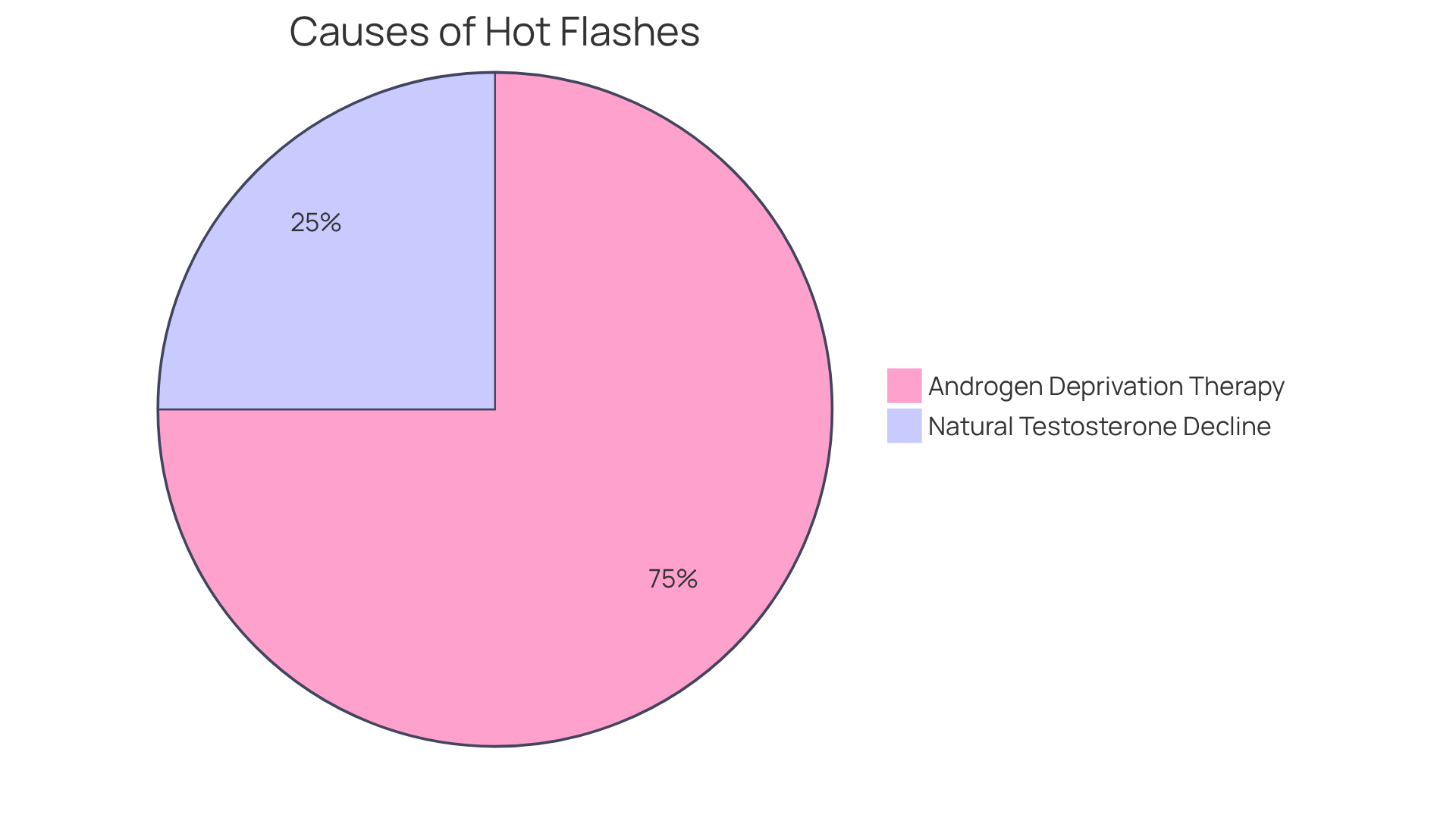
Exploring Hormonal Imbalances: The Role of Testosterone and Other Factors
Hormonal imbalances, particularly reduced testosterone levels, can significantly impact men, leading to the question of why would a man have hot flashes. We understand how frustrating this can be. When testosterone levels drop, it can disrupt essential functions, leading to symptoms that raise the question, why would a man have hot flashes? This decline often occurs during andropause, leading to the question of why would a man have hot flashes as a side effect of medical treatments like androgen deprivation therapy (ADT) for prostate cancer. In these cases, the hypothalamus may misinterpret the body’s temperature, causing sudden feelings of heat, prompting the inquiry of why would a man have hot flashes.
Furthermore, fluctuations in estrogen levels can worsen this situation. Studies indicate that men undergoing ADT frequently experience a rapid decrease in testosterone, leading to the question of why would a man have hot flashes. At Woodlands Wellness & Cosmetic Center, we offer personalized hormone replacement therapies, including testosterone replacement and other tailored treatments designed to meet your unique needs.
Understanding these hormonal dynamics is crucial for effectively managing and treating the symptoms associated with this condition. Together, we can navigate this journey toward better health. If you’re experiencing these challenges, don’t hesitate to reach out. We’re here to support you every step of the way.
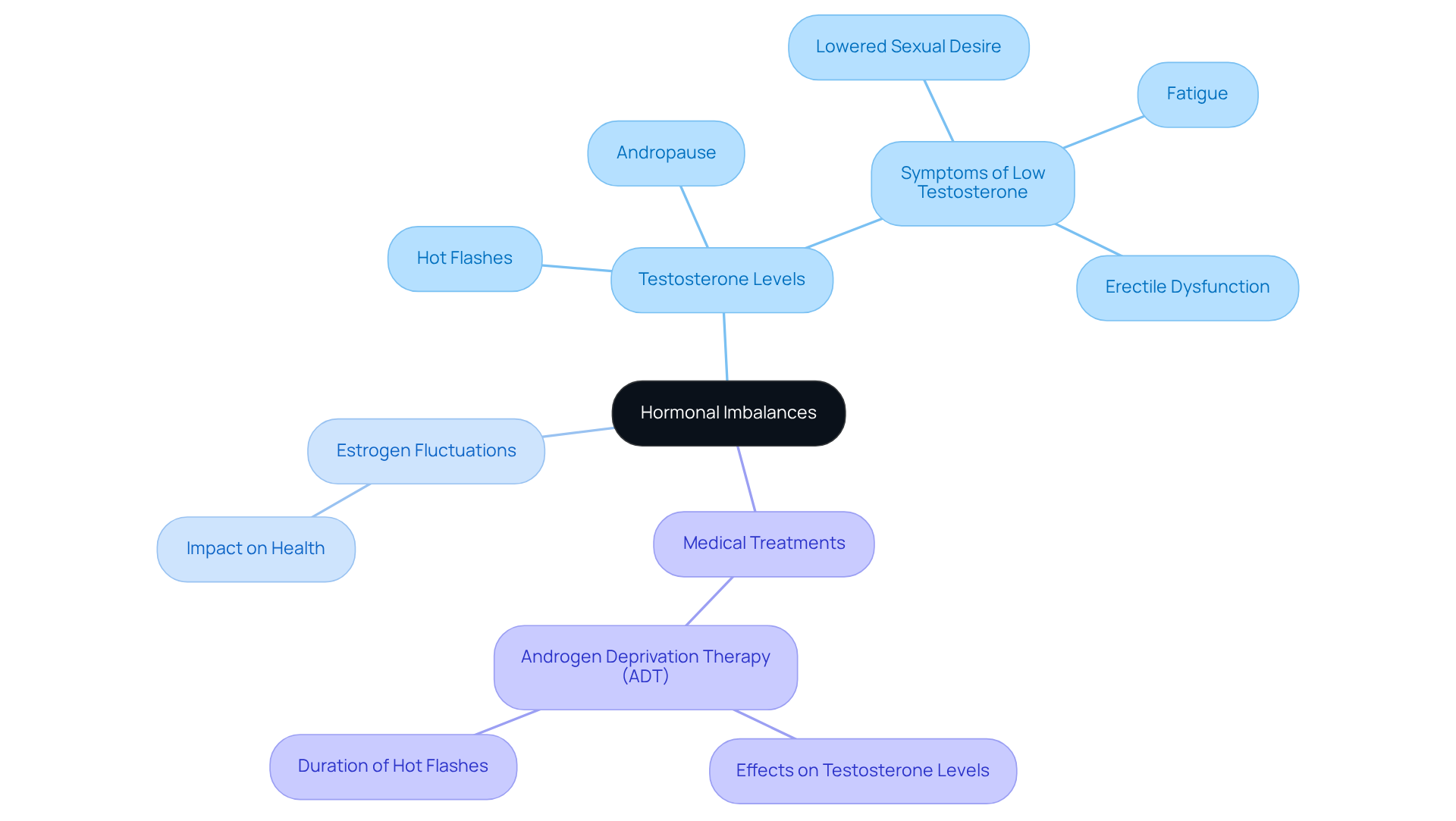
Identifying Triggers: Lifestyle, Stress, and Medical Conditions
Many men find it challenging to experience sudden warmth, leading to the question of why would a man have hot flashes, as various factors contribute to this discomfort. Lifestyle choices, especially what we eat and how much alcohol we consume, significantly influence how often and intensely these episodes occur. For example, many people notice that spicy foods and caffeine can trigger heightened sensations of heat.
Furthermore, stress plays a crucial role in this experience. When cortisol levels rise, they can disrupt hormonal balance, leading to more frequent hot flashes. Medical conditions like obesity and sleep apnea can worsen these symptoms, leading to concerns about why would a man have hot flashes, making them even more uncomfortable. It’s noteworthy that up to 8 in 10 individuals undergoing androgen deprivation therapy (ADT) report experiencing sudden warmth, highlighting how certain treatments can impact this condition.
Understanding these triggers is empowering. By recognizing the patterns in our eating habits and stress levels, we can take steps to manage these heat experiences more effectively. For instance, incorporating foods known to help reduce hot sensations—like flaxseeds, blueberries, and soy—can be beneficial. Together, we can explore these changes and find what works best for you, paving the way for a more comfortable and balanced life.
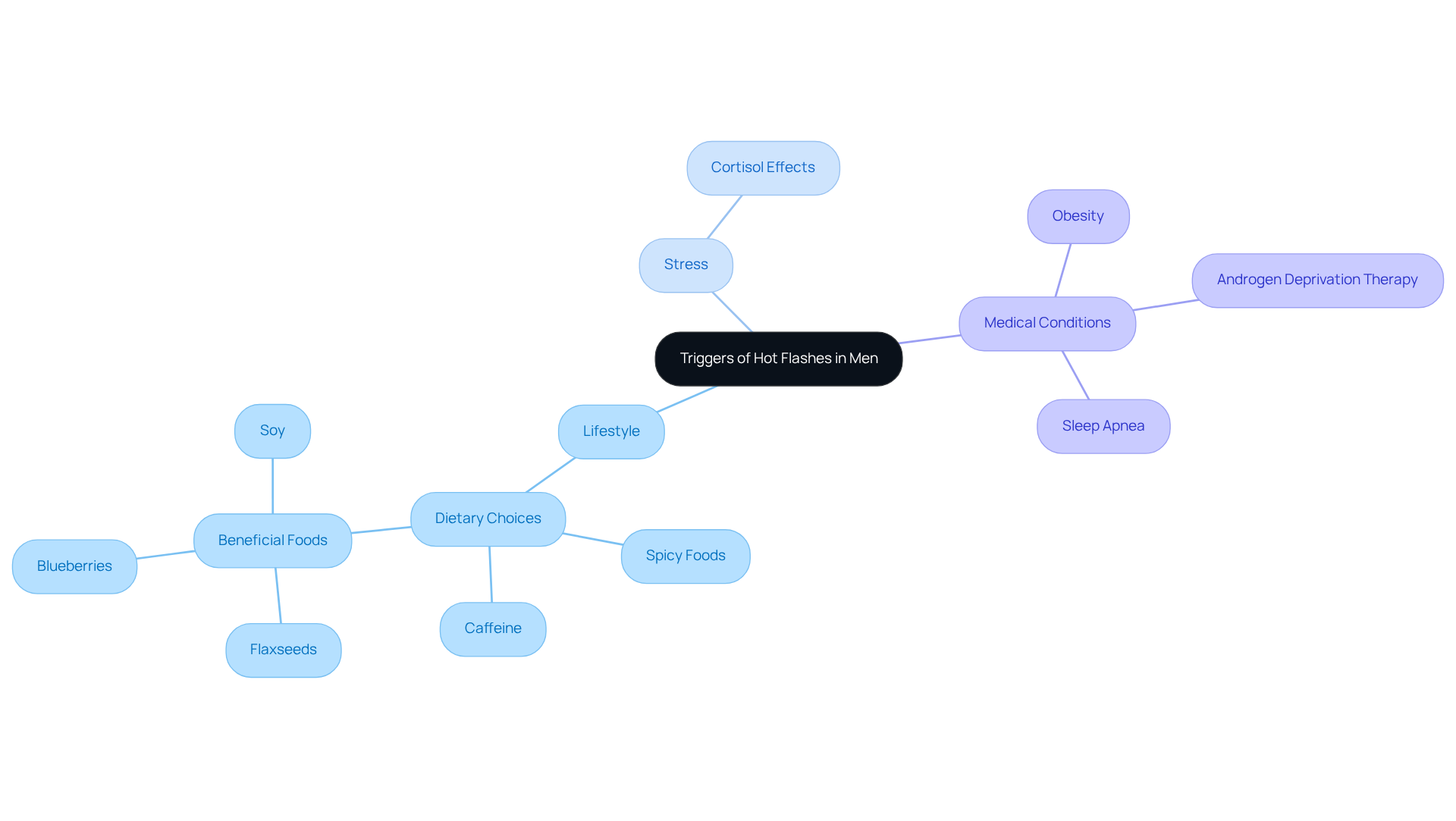
Implications of Hot Flashes: Mental Health and Quality of Life Considerations
During andropause, a natural phase marked by a gradual decline in testosterone levels, many may wonder why would a man have hot flashes, as experiencing sudden warmth sensations can deeply affect a man’s mental well-being and overall quality of life. Many men find themselves feeling embarrassed, anxious, or frustrated as they question why would a man have hot flashes due to the unpredictable nature and discomfort of these episodes. In fact, research indicates that about 72% of men report that hot sensations disrupt their sleep, raising the question of why would a man have hot flashes, while 59% acknowledge a negative impact on their quality of life.
This psychological burden can lead to social withdrawal and a decrease in participation in activities they once enjoyed. Furthermore, the stress of managing intense heat episodes may exacerbate existing mental health issues, such as depression and anxiety. As one doctor insightfully pointed out, ‘Hot flashes feel the same to men and women: a sudden feeling of warmth or flushing that is most intense over the head and trunk, leading to the question of why would a man have hot flashes.’
It’s essential for healthcare providers to recognize these implications and take proactive steps. Offering emotional support and counseling can make a significant difference. Additionally, discussing potential treatments like hormone replacement therapy (HRT) or antidepressants can help address the comprehensive needs of those affected. Together, we can navigate this journey toward improved well-being.
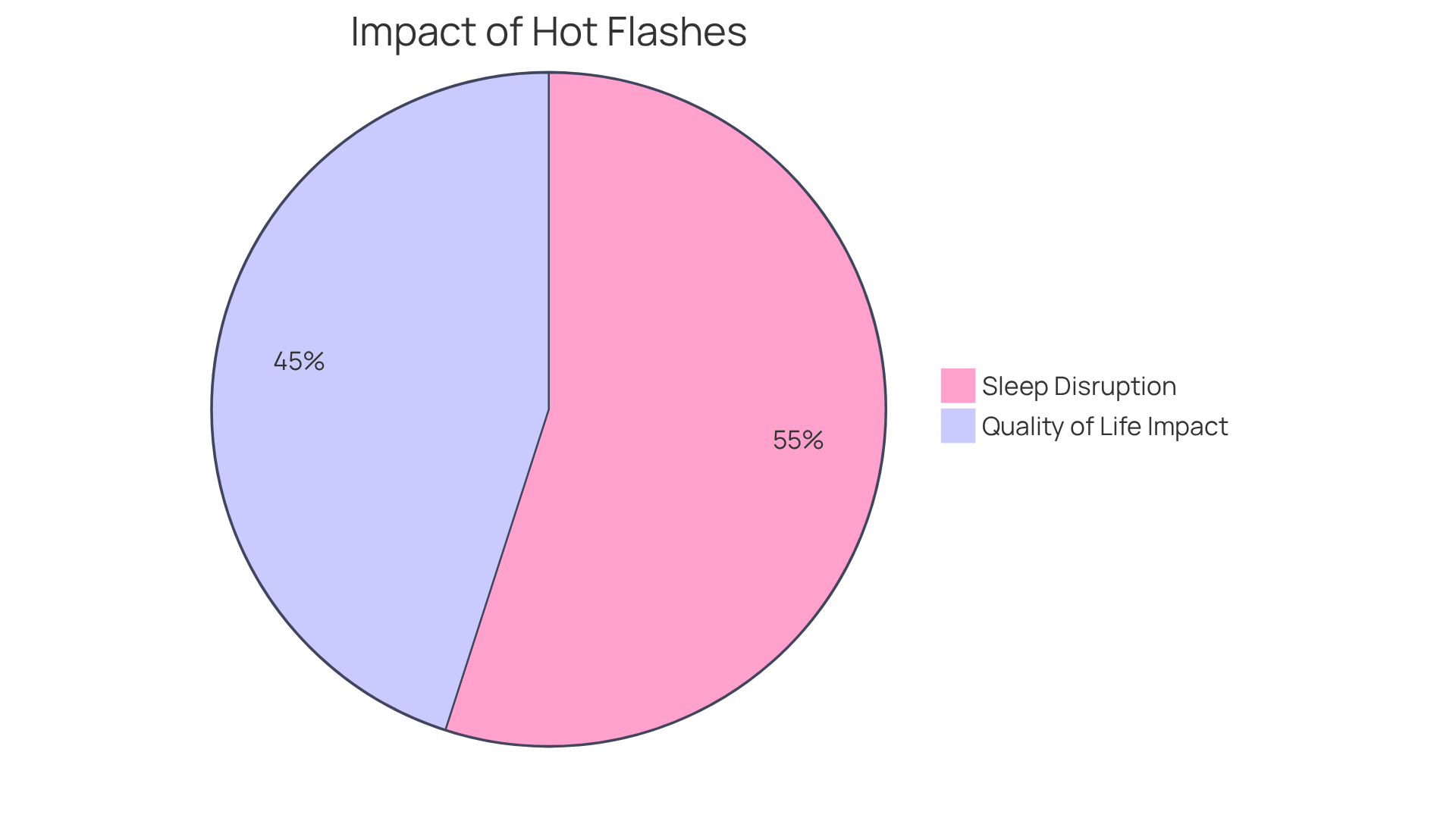
Conclusion
Understanding the reasons behind hot flashes in men is crucial for recognizing and addressing a common yet often overlooked experience. This article sheds light on the various factors contributing to this phenomenon, emphasizing that men, like women, can experience significant discomfort due to hormonal changes, medical treatments, and lifestyle choices. By fostering an awareness of these issues, it becomes clear that men are not alone in navigating these challenges.
Key insights discussed include:
- The impact of declining testosterone levels
- The role of stress
- The influence of lifestyle factors such as diet and alcohol consumption
Furthermore, the prevalence of hot flashes among men undergoing androgen deprivation therapy highlights the need for open conversations about these symptoms. Additionally, the psychological implications of hot flashes, including their effects on mental health and quality of life, underscore the importance of seeking support and treatment options.
Ultimately, recognizing and understanding hot flashes in men is essential for promoting well-being and encouraging proactive health management. By addressing these symptoms openly and exploring potential solutions, men can reclaim their quality of life and mental health. Together, we can foster a supportive environment that encourages discussions about these experiences, ensuring that men feel empowered to seek help and improve their overall health.
Frequently Asked Questions
What causes hot flashes in men?
Hot flashes in men can be caused by specific medical therapies, particularly androgen deprivation therapy (ADT) for prostate cancer, as well as natural declines in testosterone levels, especially in men in their 40s and 50s.
How common are hot flashes in men undergoing medical treatments?
Approximately 70% to 80% of men receiving androgen deprivation therapy (ADT) for prostate cancer report experiencing sensations of warmth or hot flashes.
What is andropause, and how is it related to hot flashes?
Andropause refers to the natural decline in testosterone levels that occurs in some men as they age, particularly in their 40s and 50s, which can lead to symptoms such as hot flashes.
Is it normal for men to experience hot flashes?
Yes, it is normal for men to experience hot flashes, and recognizing this can help reduce the stigma surrounding the issue.
What should men do if they are experiencing hot flashes?
Men experiencing hot flashes are encouraged to seek assistance and care, as support is available for those dealing with these symptoms.





